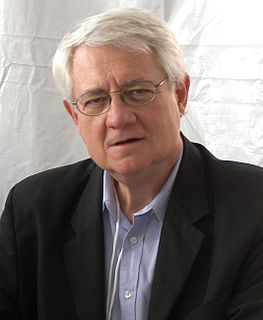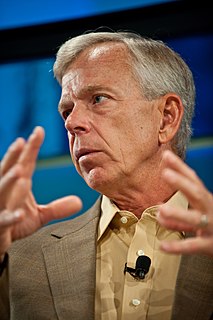A Quote by Berl Katznelson
We wanted to raise a generation of heretics, but instead we raised a generation of ignoramuses
Quote Topics
Related Quotes
Today's children are living a childhood of firsts. They are the first daycare generation; the first truly multicultural generation; the first generation to grow up in the electronic bubble, the environment defined by computers and new forms of television; the first post-sexual revolution generation; the first generation for which nature is more abstraction than reality; the first generation to grow up in new kinds of dispersed, deconcentrated cities, not quite urban, rural, or suburban.
If you look at the first generation of wireless, it really lasted about 15 years before we went to the second generation. When we implemented the fourth generation, which allowed us to do all the smartphones and the videos, the time between that and going to the fifth generation is going to be four years.



































